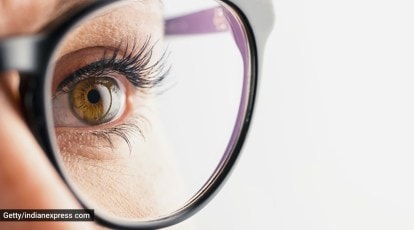Pediatrics in Andalusia: Compassionate Take Care Of Growing Families
Wiki Article
Is Refractive Surgery Right for You? Variables to Consider for Better Eyecare
In the world of eye treatment, the choice to undergo refractive surgical treatment is a substantial one that requires thoughtful consideration. As individuals seek clearness and flexibility from the restrictions of restorative lenses, various aspects enter play when determining the suitability of such a treatment. From the complexities of one's ocular health and wellness to the details of day-to-day habits and personal expectations, each facet holds significance in the broader landscape of refractive surgery candidacy. By evaluating these crucial elements with care and precision, a clearer path towards informed decision-making arises.Eye Health And Wellness Assessment
When considering refractive surgical procedure, a thorough eye health and wellness assessment is essential to evaluate the viability of the treatment for each and every individual. andalusia pediatrics. This examination involves a collection of exams and examinations conducted by an eye treatment expert to determine the total health and wellness of the eyes, the presence of any type of underlying problems, and the stability of the refractive mistakeDuring the analysis, various variables are taken into consideration, such as the patient's clinical history, present eye prescription, corneal density, pupil dimension, and tear film top quality. These evaluations help to determine any contraindications to refractive surgical treatment, such as corneal abnormalities, cataracts, or without treatment eye infections. Additionally, the examination helps to handle person expectations relating to the potential results of the surgical procedure based on their special eye characteristics.
Ultimately, the eye health and wellness analysis is essential in guaranteeing the security and efficiency of refractive surgical procedure, as it provides valuable insights into the person's eye health and wellness standing and aids establish the most suitable treatment options for accomplishing ideal aesthetic end results. (andalusia pediatrics)
Way Of Life Evaluation
An extensive lifestyle evaluation is integral in establishing the suitability of refractive surgical procedure for an individual's aesthetic correction requirements. Way of living elements such as line of work, pastimes, and day-to-day activities play a critical function in the decision-making procedure regarding refractive surgical treatment.Additionally, lifestyle habits such as sports participation, exterior activities, or also skin care routines can influence the recovery procedure and total success of refractive surgical procedure. By performing a detailed way of life assessment, eye care professionals can tailor their referrals and treatment plans to satisfy the one-of-a-kind needs of each person, inevitably leading to boosted visual outcomes and satisfaction.
Assumption Positioning

Individuals need to comprehend that while several individuals attain 20/20 vision or better complying with refractive surgical procedure, some may still call for glasses for certain tasks like reading or driving at night. Taking care of these expectations assists learn the facts here now prevent frustration and frustration post-surgery, leading to a more positive total experience for the patient.
Danger Evaluation

Factors that may raise the risk of issues consist of age, certain medical problems like autoimmune diseases, unsteady vision prescription, slim corneas, and impractical client assumptions. In addition, choosing a knowledgeable and skilled specialist, adhering to pre and post-operative care directions faithfully, and disclosing any appropriate case history can aid mitigate risks.
To reduce the probability of difficulties, ophthalmologists conduct extensive pre-operative analyses to recognize any contraindications to surgery. They likewise go over the possible threats and benefits with patients throughout the assessment process. By taking part in open communication and shared decision-making, both the ophthalmologist and the client can collaborate to identify if refractive surgical procedure is the appropriate selection based upon specific danger accounts and preferred results.
Assessment Significance
Thinking about the crucial role of informed decision-making in assessing risks and possible difficulties in refractive surgical procedure, the appointment procedure holds substantial value in directing individuals towards optimal end results. Throughout the assessment, the ophthalmologist reviews the individual's eye health and wellness, refractive errors, and total viability for surgical treatment. This initial analysis is vital in identifying the most ideal procedure for each person, taking into consideration elements such as corneal density, pupil dimension, and existing eye conditions.Moreover, the appointment works as an opportunity for individuals to discuss their assumptions, worries, and any inquiries they may have pertaining to the surgical treatment. Clear interaction in between the doctor and the person is necessary to ensure realistic assumptions and an extensive understanding of the potential dangers and advantages involved.
Furthermore, the consultation enables the doctor to explain the different medical options offered, their corresponding end results, and the post-operative care needed. This thorough discussion equips people to make well-informed decisions regarding their eye treatment, bring about better fulfillment and end results post-surgery.
Verdict
To conclude, individuals thinking about refractive surgical procedure should undergo an extensive eye health and wellness analysis, analyze their lifestyle habits, align their expectations with prospective results, examine the affiliated threats, and focus on consultations with eye a fantastic read care professionals. These elements play a vital duty in determining the suitability of refractive surgery for every individual, guaranteeing ideal results and fulfillment with the treatment.Individuals thinking about refractive surgical treatment typically have high expectations regarding the outcomes, anticipating best vision without the demand for glasses or call lenses. While refractive surgical procedure can considerably enhance vision and decrease dependency on visual help, it is vital find more information for people to understand that results might differ based on private elements such as the degree of refractive error, corneal thickness, and total eye wellness.
By involving in open communication and shared decision-making, both the individual and the eye doctor can function together to figure out if refractive surgery is the best choice based on specific danger profiles and preferred outcomes.
Taking into consideration the critical duty of notified decision-making in assessing risks and possible issues in refractive surgery, the appointment process holds substantial significance in guiding individuals in the direction of ideal end results. During the appointment, the ophthalmologist reviews the client's eye wellness, refractive errors, and overall viability for surgery.
Report this wiki page